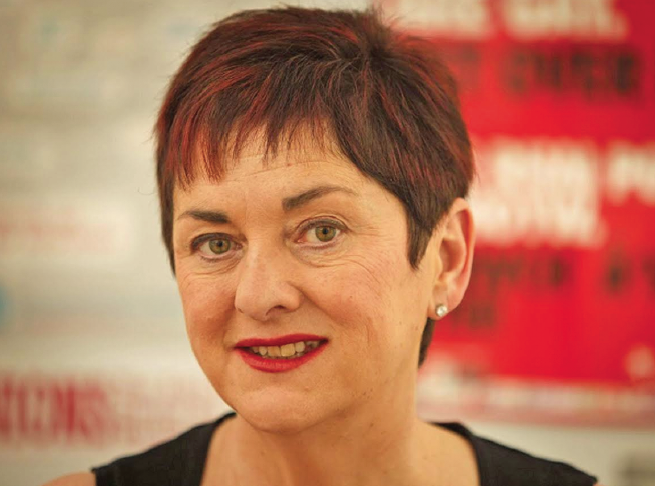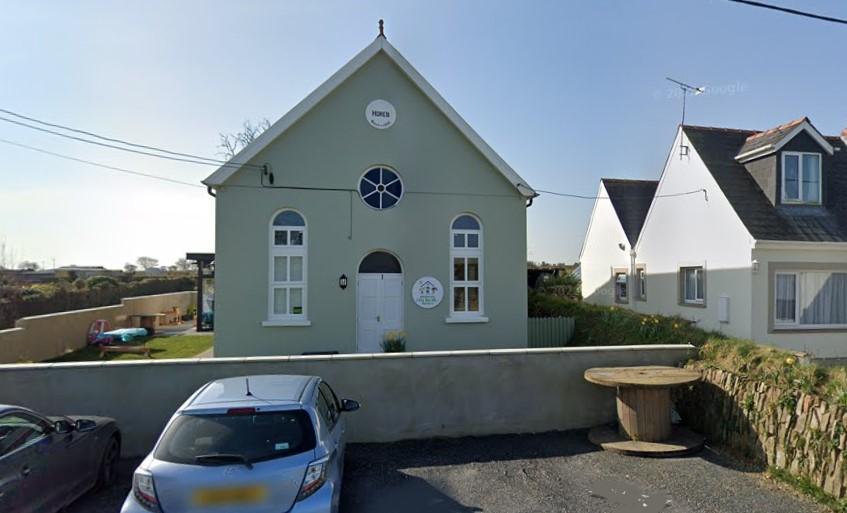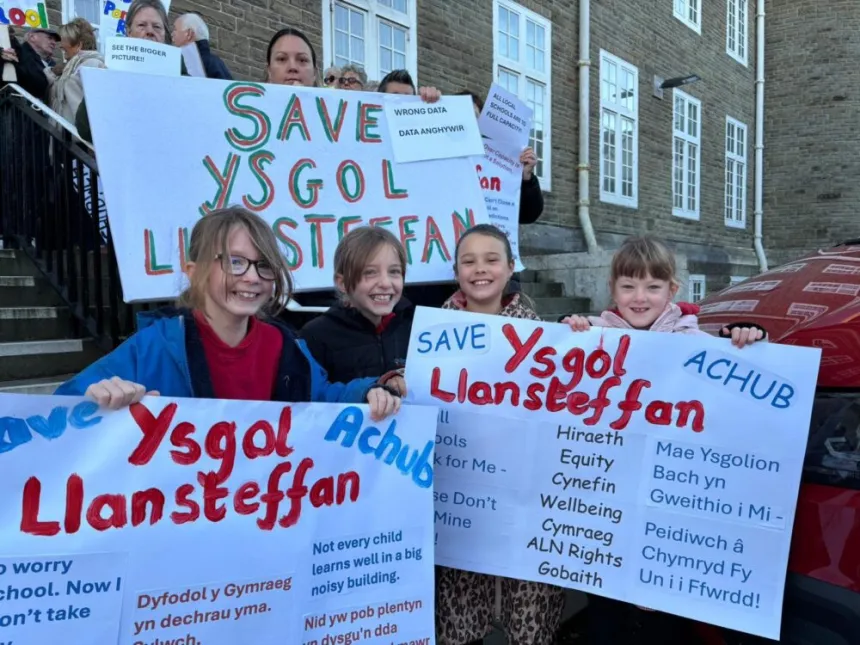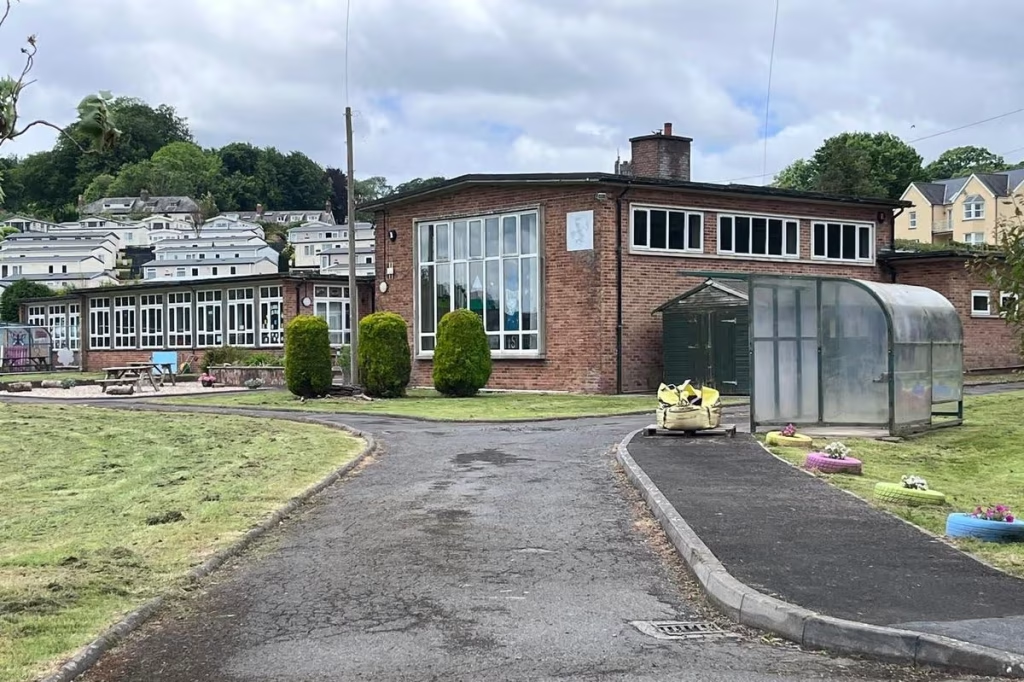Education
‘Overworked, underpaid and taken for granted’


Dr Mary Bousted: ‘Support staff have excessive workloads’
OVER 1,750 support staff working in UK state-funded schools responded to the survey, which showed more than six-in-ten (64%) said they do not consider the work they do when acting as cover supervisor to be different to that done by supply teachers.
Generally, the role of a cover supervisor is to supervise children’s work but not teach.
71% of support staff believe it is not possible to simply supervise a class when providing cover supervision without actually delivering classes.
A cover supervisor at a secondary school in Kent said: “In any given week I can cover up to 30 lessons plus two registrations a day. The work is exhausting. Pupils do not treat support staff with the same respect as teaching staff. We are teaching lessons, not delivering them. Our pay rate does not reflect our responsibility levels.”
A teaching assistant in a primary in Warwickshire said: “I understand that budgets are tight in schools but that is no excuse for how support staff are treated. I cover teachers two days a week during which time I teach the class. The financial reward for doing this is barely noticeable in my wages. Workload is as big a problem for support staff as it is for teachers.”
A cover supervisor in a secondary school in England said: “Too much is expected of cover supervisors. Assessing, marking and planning are not supposed to be undertaken but are regularly expected of cover supervisors who feel they cannot say no because it may not be seen favourably.”
Support staff also reported they have to work over and above their contacted hours each week with 12% working more than seven extra hours a week and a third working more than four hours than contracted per week. And of those having to work extra hours a week, 75% said they do so because their workload demands it. 22% said they work extra hours as it is ‘expected of them’.
73% of respondents do not get paid for doing any extra hours of work.
A learning support assistant from an infant school in Hampshire said: “Having worked in education for many years the responsibilities linked to the role of the teaching assistant increase every year. Sadly the recognition for loyalty, experience and pay seem to do the opposite.”
With support staff feeling they are already overworked, around a fifth (21.4%) of respondents said this is worsened by support staff redundancies made at their school in the last 12 months. Just over a quarter (26%) said the redundancies were compulsory.
Unsurprisingly, 61% said the support staff redundancies had been made because of financial shortages, with school budgets being eversqueezed. 26% said redundancies had been made due to re-organisation at their school. A technician in a secondary school in North Somerset said: “Support staff morale is at an all-time-low. People are stressed, overworked and underappreciated, and yet more cuts are needed apparently.”
Dr Mary Bousted, general secretary of ATL, said: “Support staff are struggling under excessive workloads as much as teachers and this survey shows that, sadly, support staff feel over-utilised and under-valued.
“It is unacceptable that so many support staff are working longer hours than they are contracted for. Even more so, they are feel that have to work longer hours because their workload demands it.
“The Government needs to address workload issues for all education staff as we know that the hours worked, and the type and impact of some of that work, is becoming too much for them, resulting in stress and illness. It is driving experienced and valuable staff from the profession.
“This is why ATL has launched its work-life campaign ‘It’s about time’ which aims to empower our members and colleagues to find ways to tackle the issue, to reduce hours, to reduce unnecessary workload and to give professionals the time and trust to make the maximum impact on pupils’ learning.”
The survey also found that support staff are struggling to get the training and continuing professional development (CPD) they need, with 41% saying their school does not regularly organise CPD for support staff. 47% said this was because of a lack of funds and 30% said it was due to lack of time.
Education
Pembrokeshire youth workers lead life-changing wellbeing visit to Iceland

A GROUP of Pembrokeshire school-based youth workers recently took young people from four secondary schools on an unforgettable six-day visit to Iceland — a journey focused not only on education, but also on wellbeing, confidence and personal growth.
Funded through Taith, an international learning exchange programme for people in Wales, the trip brought together young people from across the county, many of whom had never travelled abroad before.
From the moment they arrived, the experience was designed to encourage participants to step outside their comfort zones, build resilience and develop friendships in a supportive environment.
One of the most powerful moments came as the group stood together at the Old Harbour in Reykjavik under the night sky, watching the Northern Lights shimmer above them. For many, it provided a rare pause from everyday pressures — a moment of calm, connection and awe that youth workers say will remain with them for years to come.
The group also attended Iceland’s Festival of Lights, experiencing the atmosphere of creativity, music and community spirit. Sharing the celebration helped young people appreciate the importance of culture, belonging and collective joy in supporting mental wellbeing.
A visit to the Secret Lagoon offered further opportunities to slow down. Immersed in warm geothermal waters surrounded by dramatic scenery, participants experienced the benefits of relaxation and mindfulness. Youth workers noted that these quieter moments allowed conversations to develop naturally, strengthening trust and deepening relationships.
The trip placed strong emphasis on teamwork and independence. Young people navigated travel arrangements, managed responsibilities, supported one another and adapted to unfamiliar surroundings — experiences which helped build confidence and social skills.
Meeting Icelandic peers at a local youth club was another highlight. Conversations about daily life, hopes and ambitions reinforced the idea that young people across the world share similar challenges and aspirations. These exchanges fostered empathy, broadened horizons and encouraged a stronger sense of global citizenship.
Senior Youth Worker Tristy McDermott said the impact of the visit was clear.
“We observed noticeable growth in many participants over the six days — quieter young people finding their voice, friendships forming across schools, and individuals showing resilience in new situations,” she said.
“Time away from routine, combined with positive adult support and inspiring surroundings, created space for reflection and self-discovery.
“For the young people of Pembrokeshire, this was far more than a visit abroad. It was an opportunity to build confidence, strengthen wellbeing, form lasting memories and return home with a renewed sense of possibility.”
The group extended thanks to Taith for making the experience possible.
Community
Letterston nursery equipment could be stored in cemetery

A CALL for a storage container for a “well-established and valued” Pembrokeshire children’s nursery in a nearby cemetery has been submitted to county planners.
In an application to Pembrokeshire County Council, Diane Evans of Meithrinfa Do Re Mi Nursery seeks permission for the installation of a storage container, partially in retrospect, at Horeb Cemetery, Station Road, Letterston.
A supporting statement says: “The container is required to provide essential ancillary storage to support the lawful and established nursery use within the [nearby] chapel building.
“The site forms part of an active cemetery, owned and managed by a group of trustees. The applicant is one of the trustees and has obtained formal permission from the trustees for the container to be sited on this land. The area selected previously comprised a large, longstanding mound of garden waste which has now been removed. The land has been levelled and prepared with a hard-standing base.
“The container will be used solely for storage of nursery equipment and materials, including outdoor learning resources, maintenance equipment, and items required to manage both the nursery grounds and the cemetery land. No additional operational activity will take place within or around the container.”
It adds: “The day nursery provides childcare for approximately 83 children from the local community and employs 21 staff, all of whom live locally. The nursery is a well-established and valued community facility, supporting local families and contributing positively to the local economy. Adequate storage is essential to ensure the safe, efficient and compliant operation of the nursery. The chapel building itself has limited internal storage, making external ancillary storage necessary.”
It says the nursery “operates with a strong community focus and promotes sustainability and environmental awareness,” with plans to soften its appearance through the planting of trees, shrubs and flowers.
It added: “Children will take part in a ‘sow, grow and give’ project, growing cut flowers from seed. These flowers will be made available to the community, particularly visitors to the cemetery, who will be invited to cut flowers to place on the graves of loved ones. This initiative enhances biodiversity, strengthens community links, and adds social value to the cemetery space.”
The application will be considered by county planners at a later date.
Education
Parents urge council not to close Ysgol Llansteffan

Campaigners call for delay amid Welsh language investigation and rising pupil numbers
PARENTS and campaigners have urged Carmarthenshire County Council’s Cabinet not to recommend the closure of Ysgol Llansteffan when members meet on Monday (Feb 23).
The appeal comes ahead of a proposed decision that could see the village’s Welsh-medium primary school close in August this year.
The Ysgol Llansteffan Parents and Teachers Association (PTA), supported by Cymdeithas yr Iaith, has written to councillors calling for the process to be halted, arguing that key evidence remains incomplete and that the case for closure is flawed.

Among their concerns is an ongoing investigation by the Welsh Language Commissioner into the language impact assessment used to support the closure proposal. Campaigners say it would be inappropriate for the council to make a final decision before the investigation is concluded.
They also claim no council decision-makers have visited the school to verify the information used in the proposal, despite significant changes in circumstances, including a rise in pupil numbers to 17 as of January 2026.
The PTA argues that this increase undermines earlier projections and raises questions about the reliability of longer-term forecasts used to justify closure.
Financial concerns have also been raised. While council documents suggest annual savings of around £112,000, campaigners say transport costs of approximately £50,000 per year and inflationary pressures have not been clearly accounted for, potentially overstating the net benefit.
Parents say closure would remove parental choice and risk damaging Welsh-medium education in the area by forcing some children to travel further or potentially move into English-medium provision.
Cymdeithas yr Iaith has backed the PTA’s call, warning that the council’s objection report failed to properly address concerns that insufficient school capacity elsewhere could push pupils out of Welsh-medium education altogether.
Campaigners have also criticised what they describe as factual inconsistencies in the council’s reports, including outdated enrolment figures and conflicting capacity estimates for neighbouring schools.
The PTA has asked the council to defer any decision until updated data is available, the Commissioner’s findings are published, and alternative options for sustaining the school have been fully explored.
In their letter, parents stressed they remain willing to work constructively with the council to develop a long-term solution that would allow the school to remain open as a sustainable Welsh-medium provision for the community.
Carmarthenshire County Council has previously said the proposal is intended to address falling pupil numbers, high surplus places and financial pressures at the school. Cabinet members were told earlier in the process that neighbouring Ysgol Llangain would have sufficient capacity to accommodate pupils if the closure proceeds, and that transferring learners would provide access to improved facilities and help ensure long-term sustainability of education provision in the area.
The final decision is expected to be taken by full council in March following the Cabinet’s recommendation.
-

 Health5 days ago
Health5 days agoWithybush loses emergency surgery in shock health board decision
-

 Health5 days ago
Health5 days agoHealth board confirms major hospital changes across west Wales
-

 Health4 days ago
Health4 days agoConcerns grow over Bronglais stroke plans as politicians demand clarity
-

 Health5 days ago
Health5 days agoHealth board: Changes will bring “resilience and sustainability” to West Wales services
-

 Local Government2 days ago
Local Government2 days agoCandidate who withdrew from Hakin race will still appear on ballot paper
-

 Business7 days ago
Business7 days agoMS’s host business advice surgery following demand from Business Rates Online Forum
-

 Crime7 days ago
Crime7 days agoTeen given community order after assaulting police officer at hospital
-

 Local Government7 days ago
Local Government7 days agoIndependent group threatens to oppose council tax plans over education cuts





























